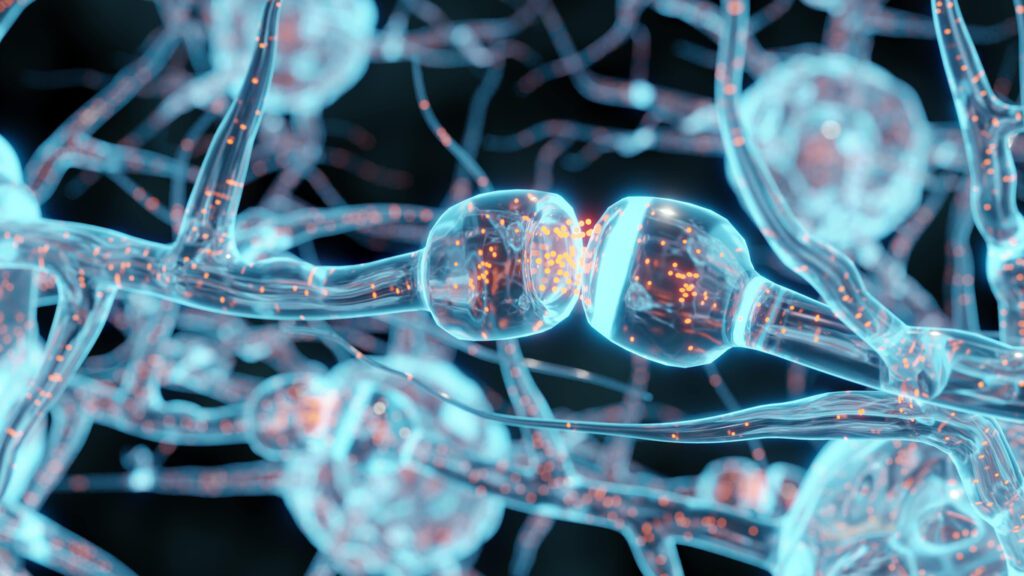Harnessing the Power of Neural Stem Cells and Exosomes for Neurological Diseases: A Promising Frontier
In the realm of medical science, there are few areas as complex and challenging as neurological diseases. These conditions, which include Alzheimer’s, Parkinson’s, stroke, multiple sclerosis (MS), and traumatic brain injuries (TBI), affect millions of people worldwide and have been notoriously difficult to treat. Traditional therapies often provide only symptomatic relief, and many fail to halt or reverse the progression of these debilitating diseases.
However, emerging research in the field of regenerative medicine is shedding light on a potentially transformative approach: the use of neural stem cells (NSCs) and their secreted exosomes to repair damaged tissues and restore neurological function.
One significant study, titled “Therapeutic Role of Neural Stem Cells in Neurological Diseases,” published in Frontiers in Bioengineering and Biotechnology, explores the immense therapeutic potential of NSCs and their exosomes. This study, alongside many others like it, underscores the groundbreaking possibilities these biological agents hold for the treatment of neurological diseases.
Neural Stem Cells: The Brain’s Repair System
Neural stem cells are a specialized type of stem cell found in the brain and spinal cord. Unlike fully differentiated cells, stem cells have the remarkable ability to develop into various cell types. In the case of NSCs, they can differentiate into neurons (nerve cells), astrocytes, and oligodendrocytes—key components of the central nervous system (CNS).
NSCs are particularly valuable because they have the potential to replace damaged or lost cells in the brain, a quality that is essential in the context of neurodegenerative diseases, where cell loss and dysfunction are the primary causes of disease progression. Moreover, NSCs can self-renew, which means they can continue to divide and produce more stem cells over time, making them a sustainable resource for regenerative therapies.
How Neural Stem Cells Aid Neurological Recovery

Research indicates that NSCs can contribute to neurological recovery in several ways:
- Cell Replacement: When neurons or other CNS cells are lost due to injury or disease, NSCs can differentiate into these specific cell types, replacing the damaged or missing cells. For example, in Parkinson’s disease, where dopaminergic neurons die off, NSCs could theoretically be used to replenish these neurons and restore normal dopamine levels.
- Neuroprotection: NSCs also secrete a variety of trophic factors, such as brain-derived neurotrophic factor (BDNF), that support neuron survival, reduce inflammation, and protect existing neurons from further damage. This neuroprotective role is crucial in conditions like multiple sclerosis, where chronic inflammation leads to the degradation of myelin, the protective sheath around neurons.
- Neurogenesis: NSCs have the ability to promote the generation of new neurons—a process known as neurogenesis. This is particularly important for diseases like stroke or traumatic brain injury, where large numbers of neurons are lost.
- Modulating the Immune System: In many neurological diseases, immune dysregulation plays a significant role. NSCs have been shown to interact with the immune system, modulating immune responses in ways that reduce inflammation and encourage healing.
Exosomes: The Secret Weapon of Neural Stem Cells
While the direct implantation of neural stem cells holds promise, recent research suggests that the therapeutic benefits of these cells may be largely mediated through their exosomes. Exosomes are tiny, nanoscale vesicles secreted by cells, including NSCs. These vesicles are packed with proteins, lipids, RNA, and microRNA, and they play a key role in intercellular communication.
In the context of neurological diseases, exosomes derived from neural stem cells have been shown to carry a variety of cargo that can help repair damaged tissues, reduce inflammation, and promote neurogenesis.
How Exosomes Aid in Neurological Healing
The therapeutic benefits of neural stem cell-derived exosomes in neurological diseases include the following:
- Promoting Neurogenesis: Exosomes can carry pro-regenerative factors such as microRNAs and proteins that stimulate the production of new neurons. This can be particularly beneficial after a stroke or traumatic brain injury, where large areas of the brain are damaged.
- Anti-Inflammatory Properties: Many neurological diseases, such as multiple sclerosis and Alzheimer’s, are characterized by chronic inflammation in the brain. Exosomes can deliver anti-inflammatory agents directly to the affected areas, helping to reduce inflammation and slow the progression of disease.
- Supporting Neuronal Survival: Exosomes contain neurotrophic factors that help to support the survival of existing neurons, particularly in degenerative diseases like Parkinson’s and ALS. By preserving the neurons that are still functional, exosome therapies could help to maintain brain function and prevent further cognitive decline.
- Repairing the Blood-Brain Barrier: The blood-brain barrier is a critical structure that protects the brain from harmful substances in the bloodstream. However, in many neurological diseases, this barrier becomes damaged, allowing toxins and immune cells to enter the brain. Exosomes have been shown to play a role in repairing the blood-brain barrier, protecting the brain from further damage.
Clinical Applications of NSCs and Exosomes in Neurological Diseases
- Alzheimer’s Disease: Alzheimer’s is characterized by the accumulation of amyloid-beta plaques and neurofibrillary tangles, which lead to widespread neuron death. NSCs and their exosomes have been shown to clear amyloid-beta deposits, reduce neuroinflammation, and promote the survival of neurons. Studies suggest that exosome-based therapies could offer a non-invasive way to deliver treatments that target the root causes of Alzheimer’s, potentially halting or reversing disease progression.
- Parkinson’s Disease: The loss of dopamine-producing neurons in Parkinson’s results in movement disorders, including tremors and rigidity. NSCs can differentiate into dopaminergic neurons, potentially replacing those lost in Parkinson’s patients. Moreover, exosomes derived from NSCs can carry neuroprotective factors that support the survival of remaining neurons, which could slow disease progression.
- Stroke: Stroke occurs when blood flow to the brain is interrupted, leading to the death of brain cells. In animal models, NSC-derived exosomes have been shown to reduce brain damage, promote neurogenesis, and improve functional recovery. These exosomes can cross the blood-brain barrier, making them a promising candidate for stroke therapy.
- Multiple Sclerosis (MS): MS is an autoimmune disease that attacks the myelin sheath around neurons. NSCs have been shown to promote remyelination—the process of repairing damaged myelin—and to modulate the immune system in ways that reduce the autoimmune attack on the CNS. Exosomes can deliver anti-inflammatory signals to the brain, helping to repair myelin and restore normal function.
- Traumatic Brain Injury (TBI): TBI often leads to long-term neurological impairments due to widespread neuron damage. NSCs and their exosomes offer the potential to repair damaged neurons, reduce inflammation, and promote functional recovery in patients with TBI.
Advantages of Exosome Therapy Over Stem Cell Therapy
While both neural stem cell therapy and exosome therapy hold promise for treating neurological diseases, exosomes offer several distinct advantages:
- Non-Invasive Delivery: Exosomes can be administered through non-invasive methods, such as intravenous injection, and can cross the blood-brain barrier, delivering therapeutic agents directly to the brain.
- Reduced Risk of Rejection: Since exosomes are acellular (they contain no cells), they are less likely to trigger an immune response or cause rejection by the body, which is a potential risk with stem cell transplants.
- Targeted Therapy: Exosomes can be engineered to carry specific therapeutic agents or genetic material, making them a highly customizable treatment option for individual patients.
The Future of NSC and Exosome Therapy

As research continues to explore the therapeutic potential of NSCs and their exosomes, it’s becoming clear that these treatments could revolutionize the way we approach neurological diseases. From Alzheimer’s to traumatic brain injuries, the ability to repair damaged tissues, reduce inflammation, and promote neurogenesis offers hope to millions of patients who currently have few treatment options.
While more clinical trials are needed to fully understand the safety and efficacy of these therapies in humans, the results so far are encouraging. As the science of regenerative medicine evolves, NSC and exosome therapies may soon become a cornerstone of treatment for neurological diseases, offering patients a new lease on life.
For those facing the challenges of neurological diseases, the future of medicine looks brighter than ever with the therapeutic potential of neural stem cells and their powerful exosomes leading the way.


 St. Petersburg, Florida
St. Petersburg, Florida
